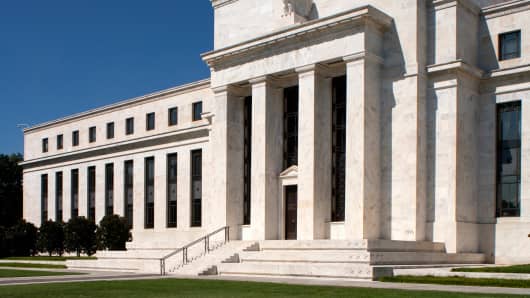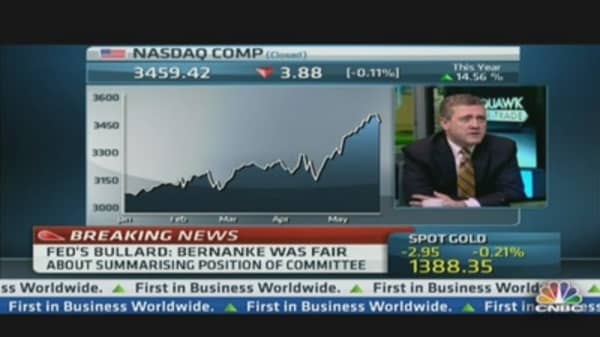Low U.S. inflation means the Federal Reserve can stick to an aggressive bond buying campaign if it decides that is warranted, even though the nation's jobs market has perked up since the program was launched, a senior central banker said on Monday.
"Labor market conditions have improved since last summer, suggesting the Committee could slow the pace of purchases, but surprisingly low inflation readings may mean the Committee can maintain its aggressive program over a longer time frame," said St. Louis Fed President James Bullard.
Bullard is a voting member of the Fed's policy-setting committee this year.
(Read More: Fed's Bullard Wants Faster Inflation Before Tapering QE)
The comments reiterate an argument that Bullard has made several times recently after data showed U.S. inflation remained well under the Fed's two percent target. The Fed's preferred gauge of price pressures, the PCE price index, was up 0.7 percent in April compared to a year ago.
Bullard acknowledged that U.S. unemployment had declined since last summer, the period when the Fed was reviewing data that led it to announce a third round of bond buying in September, but his remark placed more weight on inflation.




